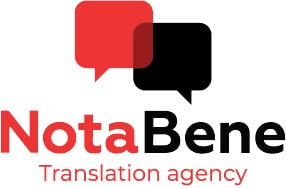How are translation prices formed?

People who have no professional connection to the world of translation are rarely aware how many steps it takes to perform a high quality translation. What is meant here is that not only a translator is involved, but also a proofreader, editor and, finally, native speaker. What other factors affect the cost of translation?
Billing unit
In the translation industry, the so-called billing or standard page form the basis for determining a translator’s fee. The standard page is traditionally 1,800 printed characters with spaces, although some agencies charge per 1,500 or 1,600 characters. Sometimes a translation agency makes use of the number of words as the benchmark. What about interpreting? Units can range from one hour to so-called four-hour blocks. If you want to order simultaneous interpreting, remember that it requires the presence of at least two interpreters who work in turns in blocks of 15–20 minutes.
Popularity of a language
In the translation industry, languages are divided into categories based on their popularity — the number of people who speak them. The first group includes languages such as English, German and French. Despite the different alphabet, the Russian language also belongs to this group. The second group includes other European languages. The third category comprises languages spoken outside of our continent that use the Latin alphabet. The fourth group consists of non-European languages with alphabets other than Latin. Translators who work with fourth category languages enjoy rates that are several times higher than those applied to first category languages. However, the number of orders for these languages is limited.
Subject matter
Proper translations of special texts call for theoretical knowledge and often practical experience in the chosen field. Therefore, translations of specialized texts are more expensive than translations of regular or common content. For example, translations of medical texts must be done or at least checked by a person with a degree in medicine or a related field. The client can then be sure of the high quality of the translation. Attention should also be paid to the agency’s previous experience. If you need to translate a sophisticated text, it is best to use the services of a specialized translation agency.
Translation — certified or not?
Remember that some texts require certification. This is mandatory for all documents submitted to government agencies. Birth certificates, wills, registration documents, as well as diplomas and certificates — translations of official documents must be certified by a sworn translator. A sworn translator is a person with special qualifications who has passed a complex exam to confirm excellent linguistic skills, legal knowledge and mastery of legal terminology in both languages. A sworn translator mostly deals with written translations. They also bear civil liability in case of an error. Rates for sworn translations are normally higher. A standard billing page for sworn translation is 1,125 characters with spaces.
Deadlines and quality
Translation time is also important. Sometimes a translation is required within 24 hours. In this case, fees increase depending on the deadline and the number of translated pages. Costs may also be higher depending on whether the text is difficult to read. Some paper documents can be illegible or damaged. In case of text files, the problem may lie in their unconventional format, which requires, for example, extracting the text from images






